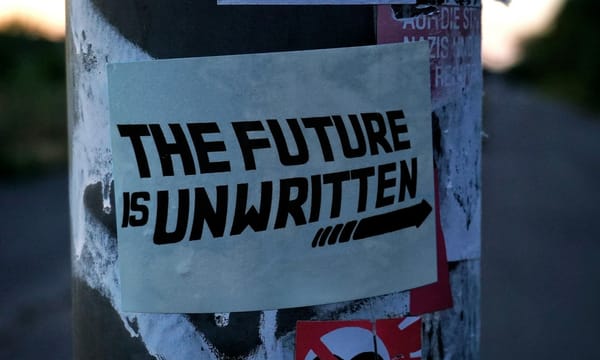Due Process Isn’t Due Anymore: What the 5-4 Supreme Court’s Ruling Really Means
This post breaks down what the recent 5-4 SCOTUS ruling actually means, how it reshapes the U.S. legal system, and why it poses an existential threat to constitutional protections. Probable cause is the Achilles' heel here and it's being ignored.

What the Supreme Court’s Ruling Really Means And Why It Should Terrify You
What Just Happened?
The U.S. Supreme Court ruled 5–4 to let the Trump administration deport hundreds, and potentially thousands, of Venezuelan migrants under a 226-year-old wartime law called the Alien Enemies Act.
While the ruling ostensibly upholds due process, a closer examination reveals a troubling departure from fundamental legal principles, and an intense debate has ignited about the erosion of constitutional protections. When the Court says deportees must still be “given due process,” most Americans misunderstand that phrase, or are intentionally misled by how it’s framed in the media.
What's happening is a transformation of due process into pure pageantry, and the public doesn't understand it because it's cloaked in legal jargon and procedure. This explainer breaks down what the ruling actually means, how it reshapes the U.S. legal system, and why it poses an existential threat to constitutional protections.
Due Process 101: What It’s Supposed to Mean
Due process is a constitutional right under the 5th and 14th Amendments.
- It guarantees notice, a fair hearing, the ability to present a defense, and legal representation.
- It also includes protection from unreasonable searches, seizures, and detentions, which requires probable cause.
In plain English: The government can’t just take your freedom, your property, or your body without proving—with evidence—that you broke the law.
The Illusion of Due Process
The Court’s majority asserts that deportees retain the right to challenge their removal. However, the practical implementation of this “due process” is deeply flawed. Justice Ketanji Brown Jackson, in her dissent, articulates this concern:
“Offering a hollow form of due process, where outcomes are preordained and defenses are illusory, is no due process at all.”
This critique underscores the performative nature of the legal proceedings afforded to those facing deportation under this act.
Historical Parallels: Echoes of Injustice
The current application of the Alien Enemies Act is not without precedent. Historically, similar measures have led to grievous miscarriages of justice:
- World War II internments: The internment of Japanese Americans during World War II, sanctioned by the Supreme Court in Korematsu v. United States, stands as a stark reminder of the perils of unchecked executive power.
- Post-9/11 detentions: Following the September 11 attacks, numerous individuals were detained without clear evidence, often based on their ethnicity or religion, highlighting the dangers of profiling and the suspension of civil liberties.
- COINTELPRO and Red Scare U.S. playbooks: floated trial balloon policies to gauge resistance; once normalized, broadened target scope.
Historical parallels abroad
- Mussolini’s “Bonifica” campaigns: mass deportations of so-called undesirables, justified by national purification.
- Pinochet’s Chile: used foreign prisons and intelligence cooperation to detain and disappear political opponents.
- The Nazi T4 program’s early phase: framed as “public safety” removal of the criminally insane and evolved into legal basis for purging political enemies.
These historical instances reflect the consequences of compromising due process in the name of national security. In the present context, the government’s reliance on superficial indicators, such as tattoos or clothing to establish gang affiliation, has led to the wrongful detention and deportation of individuals. The absence of the Trump administration's substantive and concrete evidence in these detainment and deportation determinations mirrors the arbitrary and discriminatory practices of the past.
What the Supreme Court Actually Ruled
- The Court said deportations under the Alien Enemies Act can continue.
- Migrants can still challenge deportation, but only in the state where they’re detained, not in Washington, D.C., where advocacy groups have greater legal power.
- The Court claimed that due process is preserved because detainees can file a habeas petition.
But here’s the catch: A right you can’t access is no right at all.
If you’re locked up in a private prison in rural Texas, don’t speak English, and have no lawyer? Good luck filing a complex constitutional challenge from inside a cage.
What No One Is Saying: Probable Cause Has Vanished
What is probable cause under the 14th Amendment?
- Government agents (including ICE or DHS) must have probable cause to arrest, detain, or seize property.
- Probable cause = reasonable grounds, supported by evidence, to believe a person has violated the law.
What is probable cause in immigration law?
Probable cause still applies to the arrest and initiation of proceedings, but is often bypassed via:
- Administrative arrest warrants (issued by ICE, not judges)
- Expedited removal statutes, where DHS can arrest and deport people without hearings under certain conditions
- National security exemptions, where evidence can be secret
How this applies to the SCOTUS ruling:
By focusing the ruling on where a person can file habeas, not on how the executive determines guilt or threat, it removes scrutiny from the center of the constitutional question and blesses the executive branch's unilateral determinations under the Alien Enemies Act. So, even if someone files a habeas challenge in Texas, and even if they technically have access to a lawyer, the entire question of how DHS decides someone is a gang member may be considered classified, irrelevant, or non-justiciable.
No one—not DHS, not the courts, not the White House—has explained how these individuals are being identified as gang members or threats. There’s no public record, no press access, and no ability to verify whether probable cause exists. Federal immigration hearings are closed to the public, and there is no standard reporting requirement for how probable cause is determined.
ICE and DHS can issue their own arrest warrants without judicial approval. So we don’t know if they’re relying on secret watchlists, skewed algorithms, unvetted police data, or literally just vibes and implicit bias. So basically, the government is disappearing people based on secret designations and no one can prove them wrong.
Why “Procedural Tweaks” Are Just Legal Theater
The Court’s ruling didn’t say, “You can’t deport them.” It said, “You can deport them but make sure they get a form first.”
This is what fascist legalism looks like:
- Pretend oversight
- Performative hearings
- Outcomes that are preordained because the process is rigged
The administration only needs to appear to follow the law. In practice, most people will never get a fair hearing. Many will never get a lawyer. Some may never even understand why they were detained.
The Real Goal: Turn Law Into Fear
This isn’t about law enforcement. It’s about control.
- Trump’s team wants to set a precedent that certain groups—immigrants, dissenters, “enemies” according to him—can be removed from civil protections altogether.
- They want to move court challenges into red states like Texas where legal aid is scarce and judges are aligned with the regime. So let's be real, this shift is meant to disadvantage detainees.
- Factors such as limited access to legal representation, language barriers, and the expedited nature of deportation proceedings can significantly hinder effective utilization of due process protections.
- We're seeing the emergence of a loyalty economy as they are experimenting with mass fines ($998/day), asset seizure, and exile as tools of obedience and fear, not justice.
What Comes Next If We Don’t Push Back
- Expanded deportation categories from “Venezuelan gang members” to anyone tied to a “designated enemy group.”
- Loss of birthright protections as citizenship becomes conditional on loyalty.
- Suppression of protest by labeling dissenters as “foreign-influenced security risks.”
- Deportation of U.S. citizens, which the Trump administration is already floating publicly.
The Supreme Court’s ruling represents a pivotal moment in the ongoing struggle to uphold constitutional protections. It serves as a clarion call to remain vigilant against the erosion of due process and to challenge measures that undermine the foundational principles of justice and equality.
How to Fight Back
- Tell the truth: “Due process” is being gutted. Start naming that out loud.
- Challenge the secrecy: Demand transparency about probable cause, arrest criteria, and court access.
- Support immigrant legal networks: Fund court challenges. Help move cases into safer jurisdictions.
- Educate others: Share this explainer. Host reading groups. Repost dissenting judicial opinions (Justice Jackson’s dissent is a masterclass).
- Refuse to normalize: This is not “just immigration policy.” It’s a precursor and foundation for domestic purges.
If the government can disappear people without proving they did anything wrong, then the law is no longer a shield—it’s a sword.
The Trump admin knows this isn’t just about migrants. They are influencing the future of civil rights in America and the Supreme Court just gave the regime its sharpest weapon yet.
This ruling is a clarion call—a piercing, unmistakable demand for action.
Sources
- AMICA Center for Immigrant Rights. (n.d.). Fourth Circuit Immigration Case Index. https://amicacenter.org/legal-resources/4th-circuit-cases/
- Immigration Impact. (2025, April 4). These Men Were Deported to El Salvador with No Due Process. https://immigrationimpact.com/2025/04/04/venezuela-deportations-due-process/
- Justice Security. (2025, March 25). Solicitor General’s Supreme Court Brief in Alien Enemies Act Case. https://justicesecurity.org/legal/solicitor-general-supreme-court-brief-alien-enemies-act/
- Politico. (2025, March 27). Raskin: Deportations under Alien Enemies Act ‘are unlawful’. https://www.politico.com/news/2025/03/27/jamie-raskin-trump-deportations-00005065
- Reuters. (2025, April 1). Trump deported 238 Venezuelans to El Salvador; dozens have active asylum cases. https://www.reuters.com/world/americas/trump-deported-238-venezuelans-el-salvador-dozens have-active-asylum-cases-2025-04-01/
- Sinnar, S. (2024, April 5). What the Supreme Court’s ruling on the Alien Enemies Act reveals about executive power. Just Security. https://www.justsecurity.org/109967/supreme-court-alien-enemies-act/
- them. (2025, April 2). Lawyer for a Gay Venezuelan Man Detained in El Salvador Has Grave Concerns for His Safety. https://www.them.us/story/andry-hernandez-romero-gay-makeup-artist-venezuela-el-salvador detained
- U.S. Department of Justice, Executive Office for Immigration Review. (n.d.). Immigration Court Practice Manual [PDF]. https://www.justice.gov/eoir/file/624286/dl
- U.S. Supreme Court. (2025). Department of Homeland Security v. Reyes Barrios, et al. https://www.supremecourt.gov/opinions/24pdf/24a931_2c83.pdf



